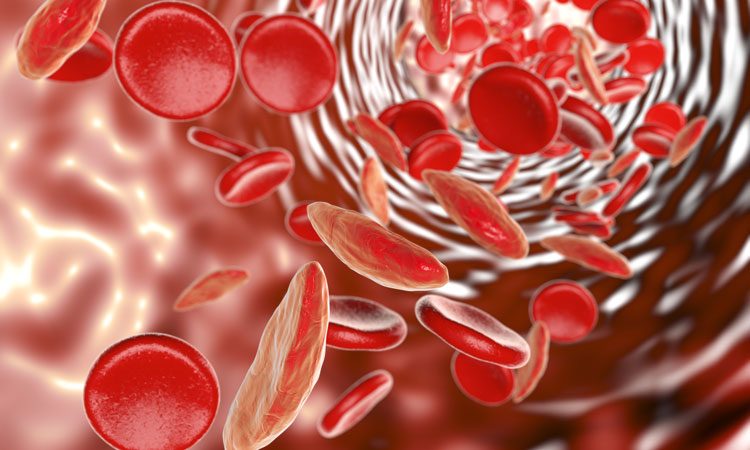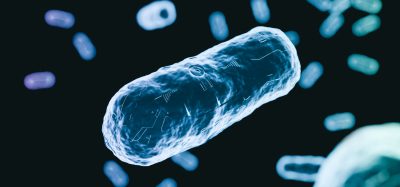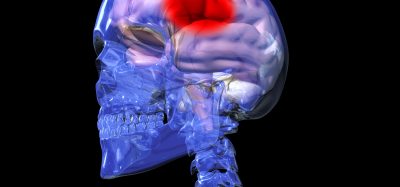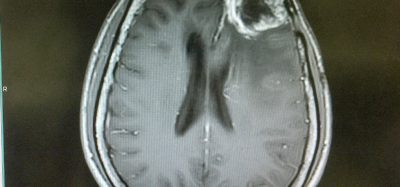Gut probiotics could offer relief for sickle cell disease pain
Posted: 24 September 2025 | Drug Target Review | No comments yet
A new study from UT Dallas and the Medical College of Wisconsin links chronic sickle cell disease pain to gut bacteria – identifying Akkermansia muciniphila as a potential target for new probiotic or microbiome-based therapies.


A research collaboration, published in Cell Host & Microbe, between The University of Texas and The Medical College of Wisconsin (MCW), has discovered a connection between chronic sickle cell disease pain and bacteria in the gastrointestinal tract.
The bacterial focus
The study focused on Akkermansia muciniphila, a type of bacteria commonly found in the human gut but less prevalent in individuals with sickle cell disease. Researchers alleviated chronic pain in mice engineered to have sickle cell disease by transplanting bacteria from the faeces of healthy mice into the digestive tract of the animals with sickle cell.
The study focused on Akkermansia muciniphila, a type of bacteria commonly found in the human gut but less prevalent in individuals with sickle cell disease.
“Our results are strong evidence that the contents of the microbiome in individuals with sickle cell might drive chronic pain,” said Dr Katelyn Sadler, Assistant Professor of Neuroscience in the School of Behavioural and Brain Sciences and corresponding author of the study.
Biomarkers aren’t just supporting drug discovery – they’re driving it
FREE market report
From smarter trials to faster insights, this report unpacks the science, strategy and real-world impact behind the next generation of precision therapies.
What you’ll unlock:
- How biomarkers are guiding dose selection and early efficacy decisions in complex trials
- Why multi-omics, liquid biopsy and digital tools are redefining the discovery process
- What makes lab data regulatory-ready and why alignment matters from day one
Explore how biomarkers are shaping early drug development
Access the full report – it’s free!
Sickle cell disease is a genetic disorder in which red blood cells become half-moon shaped, resembling sickles. Individuals with the disease experience sudden acute pain when these misshapen cells block blood flow, depriving areas of the body of oxygen. For reasons that are unclear, at least 50 percent of individuals with sickle cell disease also experience chronic pain, which has a separate pathology from acute pain.
Gut microbiome’s role in pain
“The bacteria and other compounds in your digestive system have diverse, pervasive effects beyond what people might anticipate,” Sadler explained. “Your immune system can become more activated based on gut bacteria, and that can have wide-ranging implications in your body. The idea of gut microbiomes driving chronic pain elsewhere in the body is becoming more prevalent, including in recent fibromyalgia research.”
The team identified A. muciniphila as a target for sickle cell disease pain because it produces short-chain fatty acids – which are crucial for alleviating chronic pain.
“Transplanting it into our sickle cell mice almost completely reversed their chronic pain. Interestingly, when we transplanted all bacteria from sickle cell mice to animals without sickle cell disease we transferred the pain with it – not the genetic blood disorder, but the touch and cold hypersensitivity,” Sadler said. “What we think happens specifically in these sickle cell experiments is central sensitisation, everything becomes more sensitive because of a change in the brain or spinal cord.”
Potential for new therapies for the future
Dr Amanda Brandow, lead author of the study and Professor of Pediatrics at MCW, emphasised the clinical significance of the findings and the future possibilities it brings for the development of new therapies.
Chronic sickle cell disease pain has a profound negative impact on the quality of life of individuals living with the disease
“Chronic sickle cell disease pain has a profound negative impact on the quality of life of individuals living with the disease,” Brandow said. “These findings are extremely exciting as this work provides preclinical data to support a clinical trial using probiotics or faecal microbiota transplantation as a novel treatment for chronic sickle cell disease pain.”
Sadler described the potential development of a therapeutic drug for chronic pain as ‘life changing.’
“These patients don’t have many symptom-management options right now… This idea is a type of therapy that hasn’t really been explored before. It could be relatively inexpensive for people who, right now, are often turned away when seeking pain-relief medications.”
Related topics
Animal Models, Disease Research, Microbiology, Microbiome, Neurosciences, Therapeutics, Translational Science
Related conditions
Sickle Cell
Related organisations
the Medical College of Wisconsin (MCW), The University of Texas








